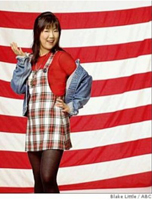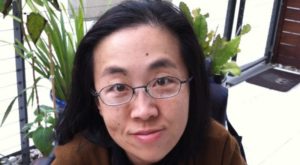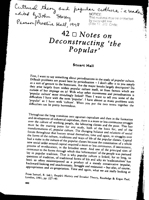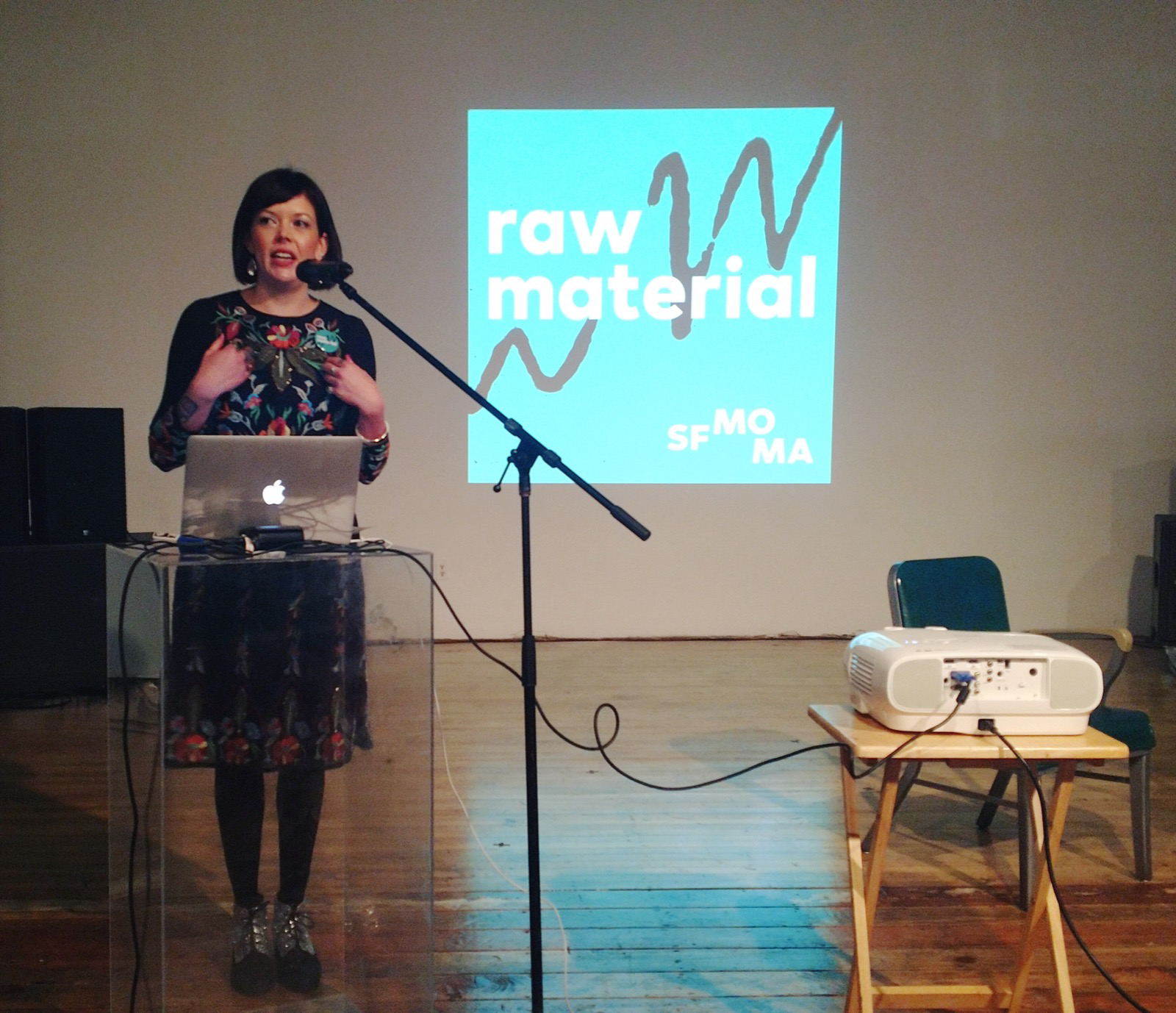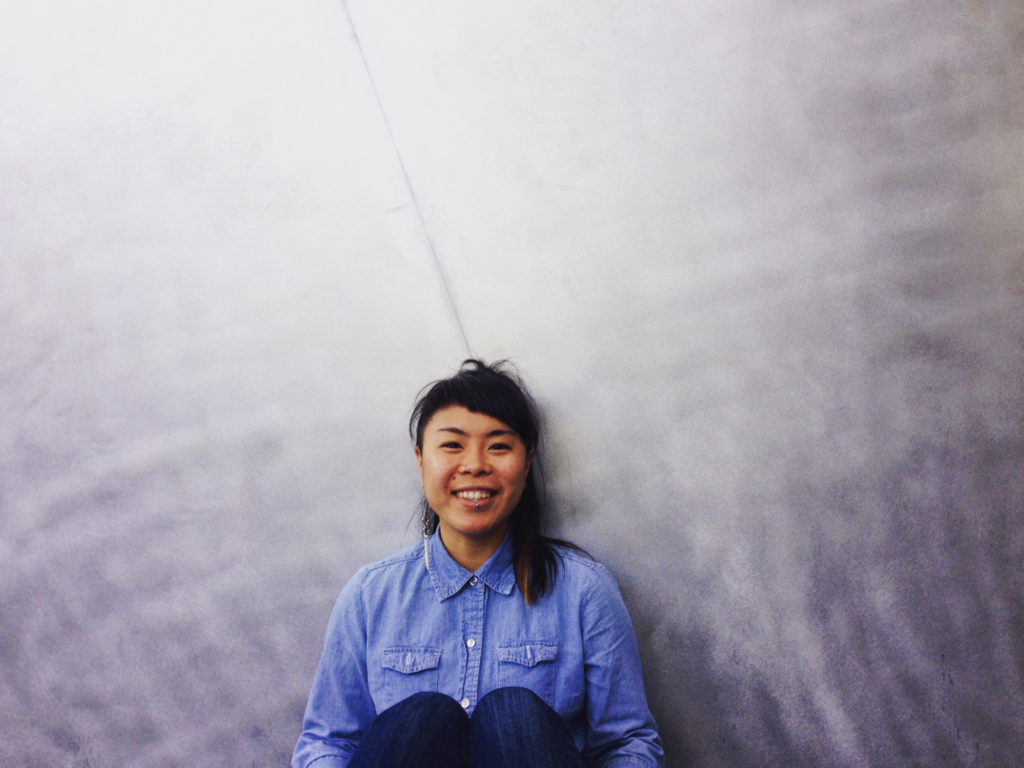
Photo: Christine Abiba
SFMOMA’s arts and culture podcast series, Raw Material is produced as distinct seasons twice a year. Each season, we work with a different local audio producer—or, as I’ve started calling these talented folks, “podcasters in residence”—to bring you a totally fresh perspective on modern and contemporary art. Geraldine Ah-Sue is our host and producer for Raw Material’s second season, Manifest. Read on to get to know Geraldine and her thoughts on exclusion, struggle, social justice, Beverly Hills, 90210, and being human.
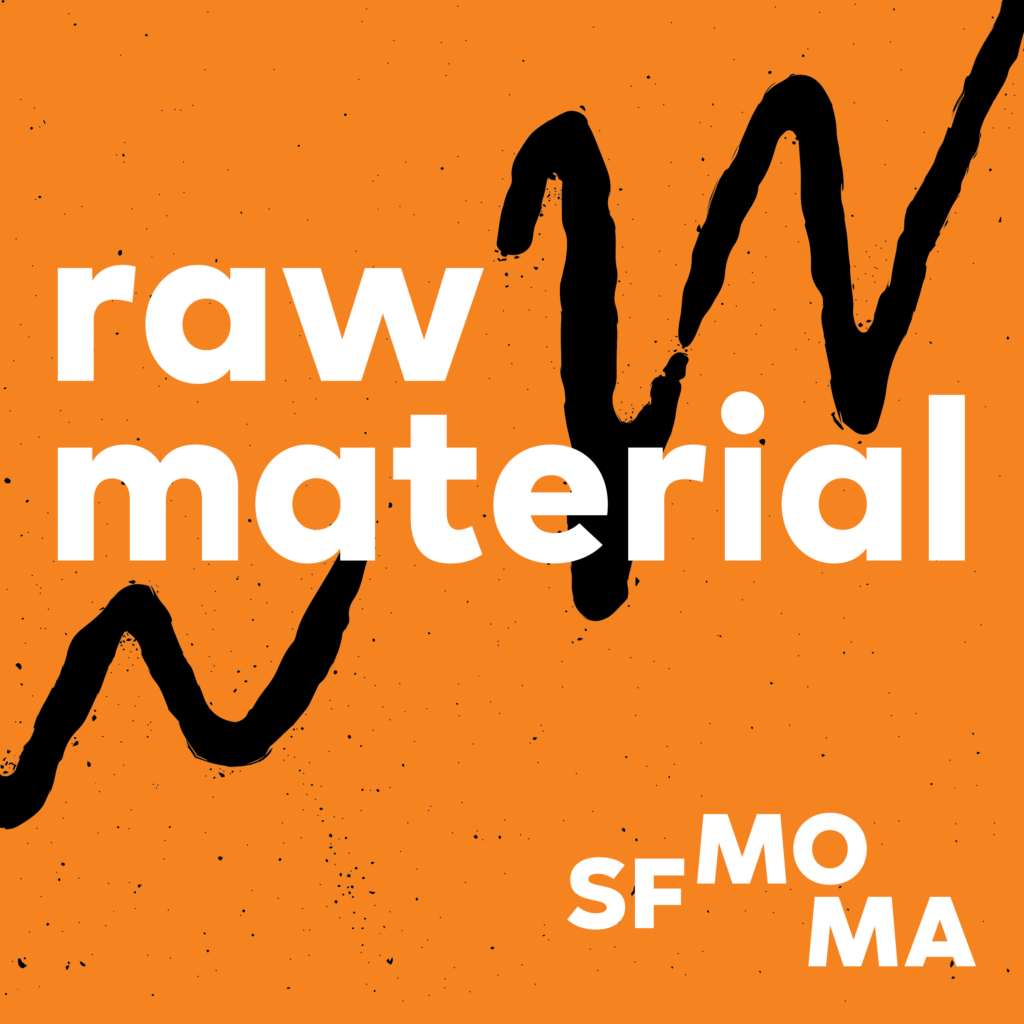
When did you first get into audio for storytelling?
When I was young, much to my dismay, I was on a very restricted diet with respect to television. I think it was about two hours of TV a week. I was also incredibly self-conscious of my status as an outsider — we were the only Asian family on our block in the suburbs of New Jersey. Top that off with not being able to talk about the latest on Beverly Hills, 90210, and my shot at being an all-American girl was toast. I mean, talk about first-world problems! Anyway. Not being able to sit directly in front of the TV, clever me, I’d sit just outside the living room and listen to it. That’s how I watched television. By listening.
What, in your opinion, makes audio such a powerful medium?
We’re inundated with visual information, all the time, yet we barely notice it. So, asking people to sit down and listen to a story, that can seem like a lot. At the same time, when I listen to a great podcast or something on the radio, I can totally lose myself in what I’m hearing. I forget everything and become one with the story. That’s really exciting to me, and it has so many far-reaching implications for how we could at least start to change how we relate to one another in real life. Audio can be a really productive and constructive way of retraining the ways in which we integrate with the world around us. By listening.
What can listeners expect from this season of Raw Material?
Oftentimes in podcast-land, people will ask about the audience of a show: “Who’s your listener?” As a person who identifies as an Asian American woman of color, I’ve oftentimes felt excluded from the voices and stories in radio and podcasting, so it’s exciting to get to make something where I can finally imagine myself in the audience, sitting alongside many different people with many different experiences. I can’t wait for this season of Raw Material! Listeners can expect to hear a lot of different things that we don’t often get to talk about on such a unique stage. Personal narrative is kind of the heartbeat of this season, so we’ll hear about the lived experiences of different artists who have been making work for decades, and how colonialism, immigration, race, class, gender, disability, and sexuality, for example, influence what they make. It’s an open conversation about the personal, the political, and a whole lot of art.
What about these themes resonates for you?
When I was growing up, my parents did a really good job of reminding me, constantly, that there is a bigger world out there. People live all kinds of different lives, and we don’t all look the same, or feel the same, or have the same disappointments, or desires, or access to resources. For many of us, struggle is a part of life; it’s hard to imagine life without it. But this also means that our lives are connected—we are in fact one another’s creations—and this truth has always been central to my understanding of what social justice is. So I’m drawn to work that shares that point of view.
I’ve also always loved this idea of “culture.” When I read Stuart Hall’s “Notes on Deconstructing the Popular,” that was the first time that I learned, in a formal way, that the fight for social justice can happen in the cultural arena. I love this understanding that culture can be manipulated, it can be twisted, but it can also be resistant, and creative, and visionary.
Let’s talk about your interviewing philosophy. How do you go about talking to people you don’t know, and what makes your approach unique?
During my time at StoryCorps, I heard these incredibly intimate conversations, and bore witness to moments where people were saying things for the first time to each other. They’d laugh and cry, and I’d be there for all of it. Me — a total stranger! My time in the booth showed me what an open display of vulnerability could look like.
I don’t know how unique this is, but, ultimately, my hope with each interview is that we’ll be able to reveal ourselves as human. A lot of this thinking is inspired by the incredible work of Mia Mingus and the Bay Area Transformative Justice collective. When I interview folks, I try to come as I am, and I hope that this invites people to come as they are, too. As a woman of color, my world experience is often tinged with somehow not being treated as fully human. Just denied, in all kinds of ways. I think this is the experience of many people who live with oppressed identities. And it seems like a lot of the work of social justice has to be in restoring that humanity. For all of us. And as long as we’re committed to each other and the work that we’re trying to achieve, I think that world is possible. It has to be.
